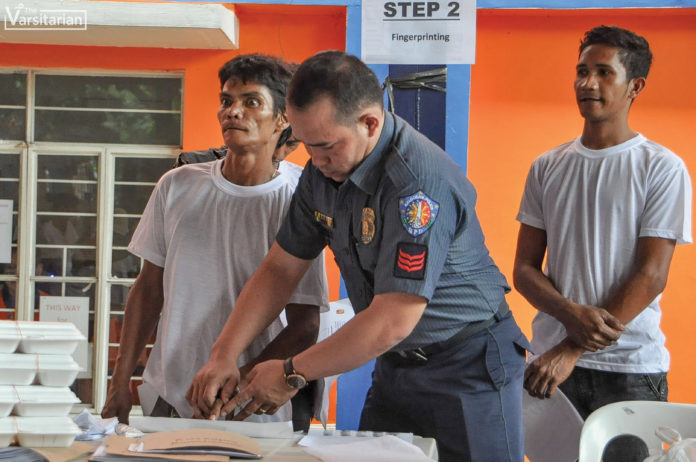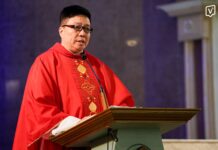THE CATHOLIC Church has vowed to heal and protect drug users who have turned themselves in through a campaign that seeks to provide family, health, and livelihood counseling.
Argentine priest Fr. Luciano Felloni of the Diocese of Novaliches launched in September a community-based rehabilitation program called ‘Healing not Killing,’ in cooperation with the police of Caloocan City.
“[The drugs] are destroying the country. Kaya naisip namin na you have to show full support to the government at may paraan ang Simbahan, `yung mapayaang paraan,” Felloni said in an interview with the Varsitarian.
The campaign will run daily for four to six months, depending on the progress of the rehabilitants. Psychiatrists and psychologists will be deployed to detoxify rehabilitants.
Forty-four drug users initially enlisted for the rehabilitation, but only 18 of them attended. Some have surrendered to the police, while others were reportedly killed.
Although the program is Church-sponsored, Felloni said all sectors of society could still contribute. He urged the faithful to go beyond social media and participate in the Church’s causes.
“It is not enough to support the campaign by liking [our page] on Facebook. Walang natutulong ang pag-like mo. You have to do concrete things,” Felloni said.
Felloni said anyone who enters the drug business—whether a pusher, a policeman, or a priest trying to help—would be in danger. But the greater danger lies in observing and doing nothing at all, he said.
“The greater danger is to face God at tatanungin ka: ‘Anong nagawa mo?’ At nga-nga ka at wala kang maisagot. For me that is more dangerous,” Felloni said.
Novaliches Bishop Antonio Tobias, who was present at the launch, backed Felloni’s effort. He has proposed the conversion of two Church properties in Quezon City into rehabilitation centers.
Partnership
The Dangerous Drugs Board has also partnered with Christ’s Commission Fellowship—a non-denominational religious organization—for a similar rehabilitation project in Antipolo, Rizal.
Dubbed as “Sipag,” the 12-week Simula ng Bagong Pag-asa recovery program was conceptualized by former drug users.
“The relevance of [Sipag] is that was designed for the Filipinos and their families. Ang nag-design kasi nito is also mga drug dependents, so alam nila `yung struggles,” Sipag program coordinator Lawrence Tugawe said in an interview with the Varsitarian.
The rehabilitants would be turned over to the board upon completion of the program.
After a series of trainings, Sipag now has more than 3,000 volunteers in Rizal. Among the issues it would like to address are dysfunction in the family, drug abuse and reintegration in the community.
Sipag is expected to be rolled out nationwide through CCF’s satellite churches.














